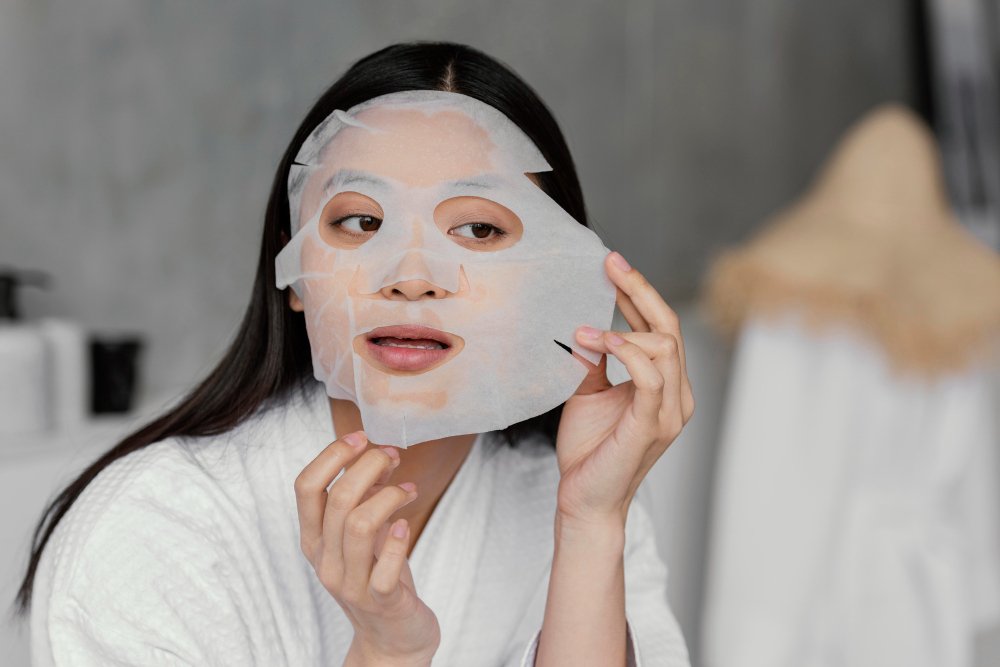Winter Skincare Essentials: Keeping Your Skin Hydrated and Healthy
- 1 Top For Keeping Your Skin Hydrated and Healthy In Winters
- 1.1 Moisturize Intensely
- 1.2 Hydrating Serums
- 1.3 Gentle Cleansing
- 1.4 Exfoliate Regularly
- 1.4.1 Types of Exfoliants
- 1.5 Foot Peels for Dry, Cracked Heels
- 1.6 Hydrating Masks
- 1.6.1 Types of Hydrating Masks
- 1.7 Additional Tips for Winter Skincare
- 2 Conclusion
The temperature drops as the cold winter air blows harshly on the skin, leading to dryness and irritation. Adapting your skincare routine for adequate protection and nourishment in the colder months is crucial. Conditions like dry, cracked heels are a common issue many face this season. Thankfully, there are practical solutions to combat these problems and maintain healthy skin.
Top For Keeping Your Skin Hydrated and Healthy In Winters
This guide will cover the importance of intense moisturization, the benefits of hydrating serums, the role of a foot peel, and more.
Moisturize Intensely

Dry, cold air often compromises the skin’s moisture barrier during winter. Opting for a richer, more emollient moisturizer can help seal in moisture and ensure protection from the elements. Look for ceramides, hyaluronic acid, and glycerin, which attract and retain moisture.
Choosing the Right Moisturizer
- Ceramides: These lipids are naturally found in the skin and help form the skin’s barrier and retain moisture.
- Hyaluronic Acid: This molecule can hold up to 1,000 times its weight in water, making it a powerful hydrator.
- Glycerin: A humectant that attracts water from the environment into the skin, keeping it hydrated.
Applying a thick layer of moisturizer both in the morning and before bed can prevent dryness and keep the skin supple. For an added boost, consider using a facial oil on top of your moisturizer to lock in hydration.
Hydrating Serums

Incorporating hydrating serums into your routine provides an extra layer of moisture. Ingredients like hyaluronic acid or vitamin B5 can deeply hydrate the skin and even improve its texture. Applying a hydrating serum before your moisturizer ensures your skin stays plump and moisturized throughout the day.
Benefits of Hydrating Serums
- Deep Penetration: Serums have smaller molecules that allow deeper penetration into the skin layers.
- Improved Skin Texture: Regular use can smooth out fine lines and make the skin appear more youthful.
- Enhanced Moisture Retention: Serums can enhance the moisture-retaining properties of your skin, preventing dryness.
Gentle Cleansing

Harsh cleansers strip the skin of its natural oils, exacerbating dryness. Switching to a gentle, hydrating cleanser can ensure a cleanse without irritating. Creamy or oil-based cleansers are excellent choices for maintaining the moisture balance while effectively removing impurities.
Choosing the Right Cleanser
- Creamy Cleansers: These are ideal for dry skin as they cleanse without stripping natural oils.
- Oil-Based Cleansers: Effective at removing makeup and impurities without drying out the skin.
- Micellar Water: A gentle option for sensitive skin, providing a hydrating cleanse without rinsing.
Exfoliate Regularly

Exfoliation removes dead skin cells and allows moisturizers to penetrate more effectively. However, choosing a gentle exfoliant is essential to avoid irritating the skin. A mild chemical exfoliant, such as lactic acid or glycolic acid, once or twice a week can keep the skin smooth and radiant without causing dryness or sensitivity.
Types of Exfoliants
- Lactic Acid: A gentle alpha-hydroxy acid (AHA) that exfoliates and hydrates the skin.
- Glycolic Acid: A more potent AHA that helps skin renewal and improves texture.
- Enzyme Exfoliants: Derived from fruits like papaya or pineapple, these are gentle and suitable for sensitive skin.
Foot Peels for Dry, Cracked Heels

Winter can be especially tough on the feet, leading to dry, cracked heels. Cold weather and indoor heating, combined with low humidity, strip the skin of its natural moisture, making the heels rough and prone to cracking. Addressing this issue requires a targeted approach, and a foot peel can effectively combat dry, cracked heels.
The Benefits of Foot Peels
- Effective Exfoliation: These peels provide a thorough exfoliation, removing layers of dead, dry skin that can accumulate on the heels. This process improves the appearance of the feet and enhances the absorption of moisturizers, making subsequent skincare steps more effective.
- Smooth and Soft Feet: These peels’ exfoliating action leaves feet feeling silky and soft. Regular use can maintain this softness, preventing the buildup of dead cells that can lead to cracking.
- Prevention of Dryness and Cracking: Regular use can keep the skin on the feet healthy and hydrated. This preventive measure can prevent cracks from forming, reducing the risk of pain and infection.
- Convenient and Easy to Use: They are simple at home and do not require professional assistance. The process is straightforward, and the results are typically visible within a week, making it a convenient option for maintaining foot health during the winter months.
Hydrating Masks

Incorporating hydrating masks into your skincare regimen can offer additional moisture. These masks typically feature aloe vera, honey, and hyaluronic acid, which are known for their hydrating and calming properties. Using them once or twice weekly aids in preserving optimal moisture levels, ensuring your skin remains vibrant and rejuvenated.
Types of Hydrating Masks
- Sheet Masks: Infused with hydrating serums, these masks instantly boost moisture.
- Sleeping Masks: Applied before bed, these masks work overnight to hydrate and repair the skin.
- Cream Masks: Rich in texture, these masks are perfect for deep hydration during a pampering routine.
Additional Tips for Winter Skincare
Protect Your Skin from the Elements
- Use Sunscreen: Even in winter, UV rays can damage your skin. Apply a broad-spectrum sunscreen with at least SPF 30 every day.
- Wear Protective Clothing: Scarves, hats, and gloves can help protect exposed skin from the harsh winter elements.
Humidify Your Environment
- Use a Humidifier: Adding moisture to the air in your home can help prevent your skin from drying out. Aim for indoor humidity levels between 30% and 50%.
- Hydrate from Within: Drink plenty of water, and consider consuming hydrating foods like cucumbers, oranges, and watermelon to keep your skin hydrated from the inside out.
Adjust Your Diet
- Include Healthy Fats: Foods rich in omega-3 fatty acids, such as salmon, walnuts, and flaxseeds, can help maintain your skin’s moisture barrier.
- Antioxidant-Rich Foods: To protect your skin from environmental stressors, incorporate fruits and vegetables high in antioxidants, like berries, spinach, and sweet potatoes.
Conclusion
Achieving healthy, hydrated skin during the winter months requires a combination of the right products and practices. Each step ensures nourishment and radiance, from using rich moisturisers to incorporating gentle exfoliation. Following these winter skincare essentials allows you to enjoy a season of beautiful, healthy skin.
Winter doesn’t have to be a time of suffering for your skin. You can maintain a glowing, hydrated complexion all season long with proper care and attention. Embrace these tips and enjoy the benefits of a well-nurtured skin barrier, regardless of the chill in the air.

















